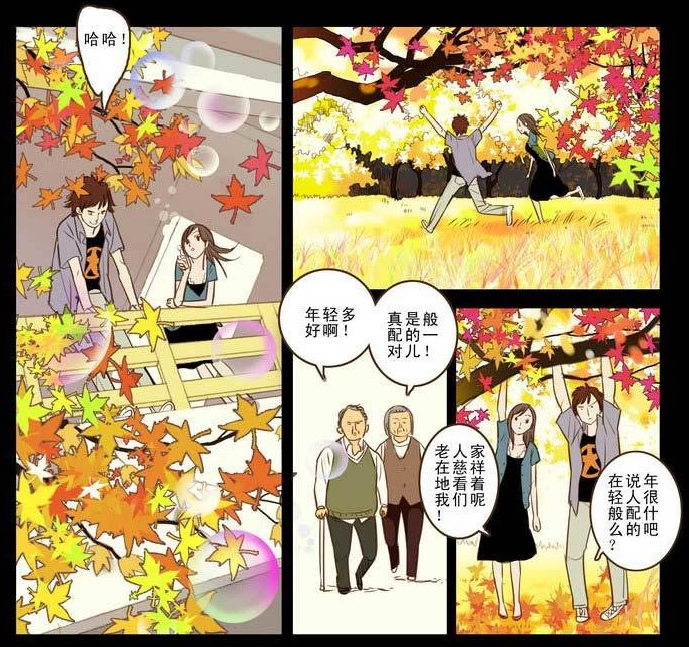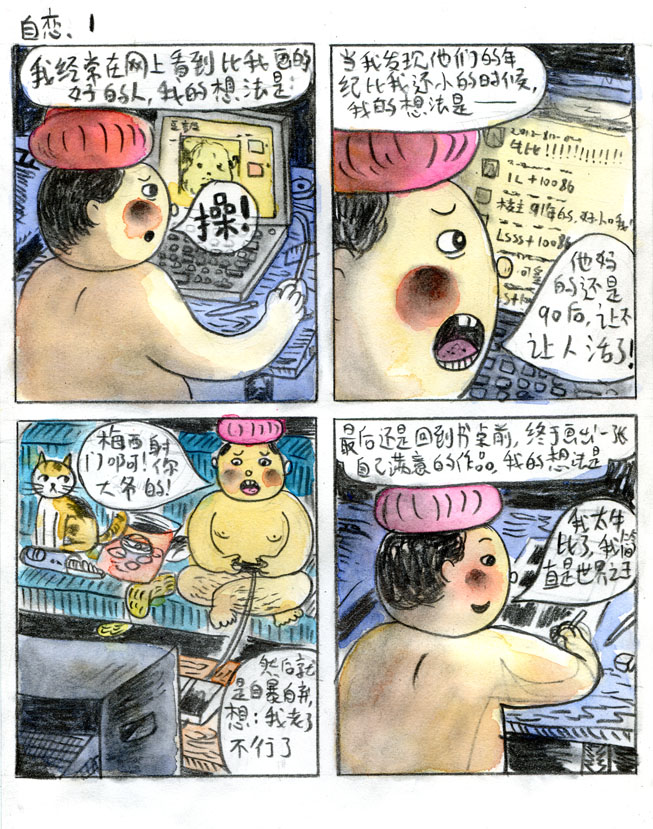Chinese comics, or manhua 漫畫, as they are known in Chinese, are hard to pin down, in large part because the term ‘manhua’ is used in so many different and often contradictory contexts.
Context 1. Manhua which are exclusive to China
“Take Love to the Limit” by Yao Feila // 《將愛情進行到底》 姚非拉
Generally whenever the term is used in English, it refers to Sinophone1 comics, or what are generally called guochan manhua 國產漫畫, or ‘domestic comics’2 within the PRC.3 In English the term ‘manhua’ is often used highlight the differences between Chinese comics and Japanese manga, similar to the way in which the term ‘manhwa’ is used to describe Korean comics. All the same, these comics tend to be very similar in appearance to Japanese comics. One notable exception are wuxia 武俠 (martial chivalry) comics from Hong Kong which were developed by Tony Wong Yuk-long 黃玉郎 during kung fu craze the 1970s, which seem to have more in common with hyper-muscular American superhero comics.
Context 2. Manhua as inclusive global medium
“Narcissism” by Yan Cong // 《自戀》 煙囪
In Chinese, manhua is a general term which refers to the global comics medium and therefore includes Japanese, Korean and American comics.4 One of the most interesting ways in which manhua is being created in this context today is the dixia manhua 地下漫畫, or ‘underground comics’ movement which is being spearheaded by artists such as Yan Cong 煙囪 and Chi Hoi 智海, who have helped organized the groups secret comics (aka SC 漫畫) in Beijing and Springrolllll in Hong Kong.
- Belonging the Chinese script, language and/or cultural context. [↩]
- Domestic being used in the economic sense here, as in ‘gross domestic product.’ [↩]
- This is often abbreviated to guoman 國漫. Manhua from Hong Kong and Taiwan seem to use more neutral terms such as bendi manhua 本地漫畫 (local comics) or bentu manhua 本土漫畫 (native comics) for Taiwanese comics in particular. [↩]
- Nowadays, it’s also less commonly used than the term dongman 動漫, a portmanteau of the Chinese words for animation, donghua 動畫, and manhua, similar to how someone might say that they like anime to describe an interest in both Japanese animation and also manga. Dongman also carries connotations of video games, as fans of one tend to be fans of the other. [↩]

